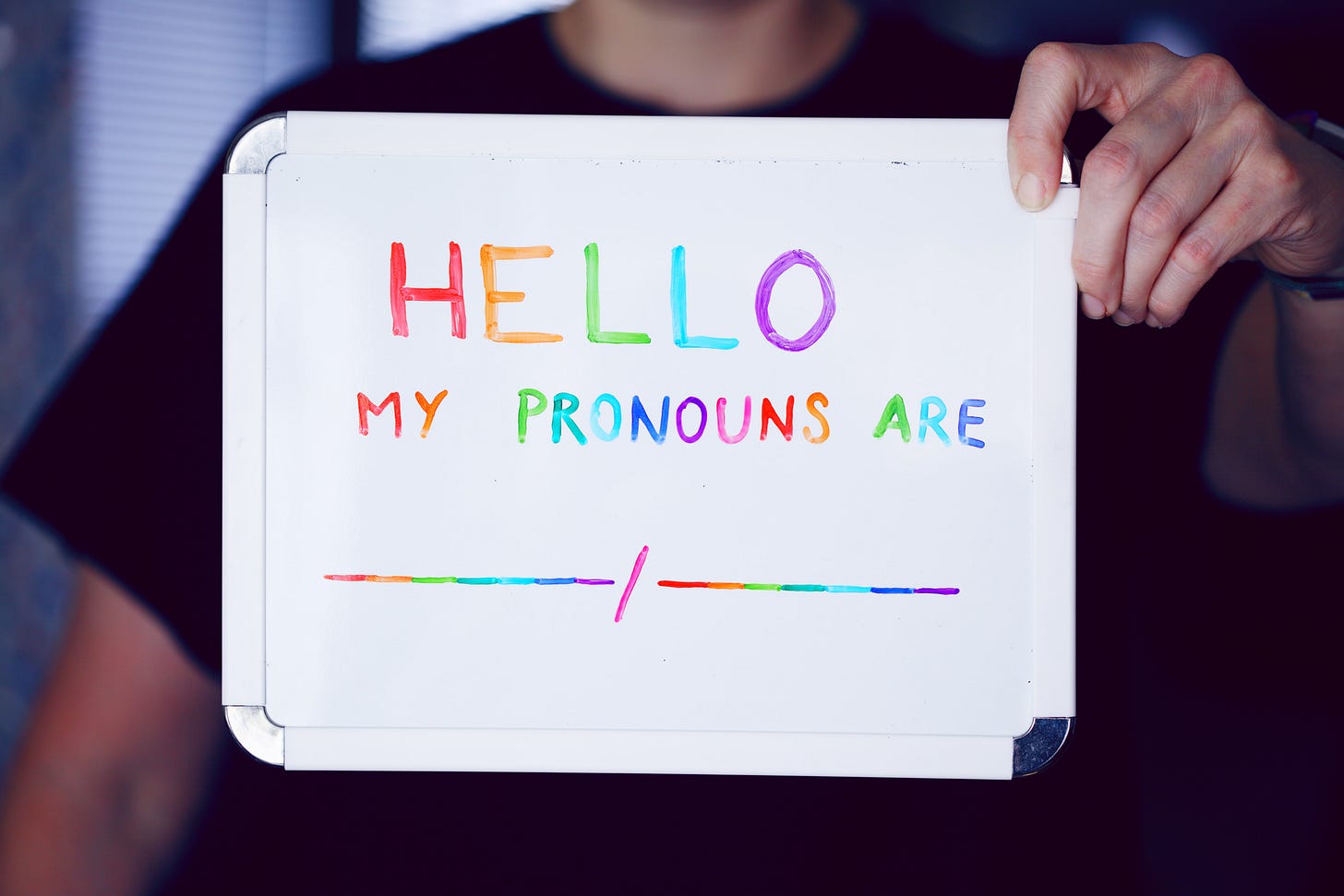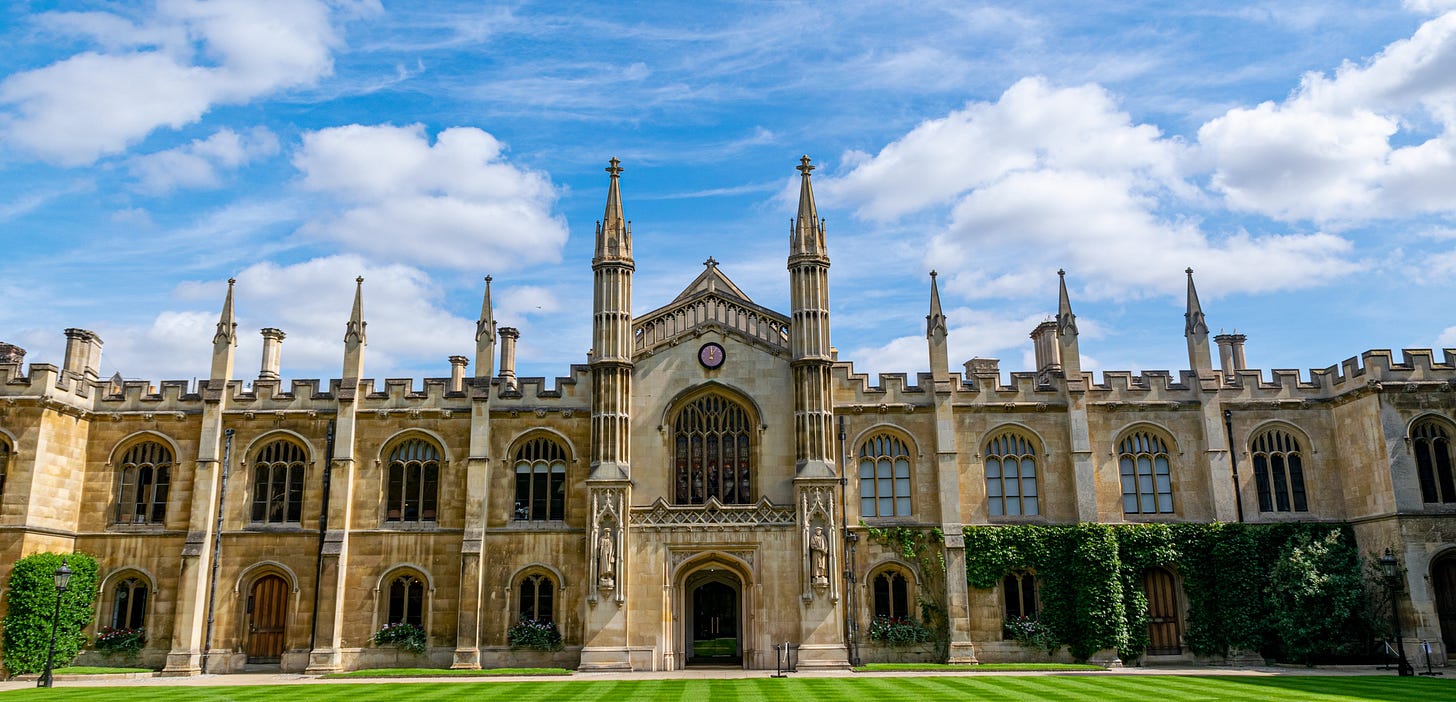Transitioning at Cambridge University
By: Alec Letten
By: Alec Letten
I realised I was transgender in my first year of sixth form.
I was 17.
When you finally piece it together it feels like an awakening and you’re desperate to grasp that newfound clarity to your life and take action, but the reality of transitioning is very scary especially when surrounded by people who you're certain won't support you.
After a few attempts to come out to my parents, which ended in arguments and me scurrying back to the closet, I had in my mind that I could start living as male at university and it would be a fresh start.
Cambridge University began and as I introduced myself to new people living in my halls, my parents were stood beside me, I couldn’t be truthful, so in the closet I remained. The next plan of action was to wait until after university – transitioning is expensive so, whilst it was a horrible prospect, it was the ‘logical’ decision to wait until I was employed [i].
However, I wasn’t at Cambridge long before I met someone I really liked, and she had to know before I could pursue any kind of relationship with her. I was scared this would change our friendship in some way and I realised if one person knows I would have to tell the rest of our friends soon. My fears were unfounded – she smiled and nodded and asked me what my name was and I felt this huge weight lift from my shoulders.
She was the first person to properly listen and to make me feel completely seen, and she's continued to be my biggest advocate for the 3 years we've been together so far.
Once I'd told her, I began the process of coming out properly.
I started with my closest friends and eventually built up the courage to send out the stock email I’d drafted to all my supervisors, because it was vital that this all happened at the same time – the thought of a supervisor still using my birthname when I’m surrounded by my peers who now know me as ‘Alec’ was hideous.
All considering, the staff at the university were fantastic.
Most supervisors simply thanked me for telling them and asked if they could do anything further to support me; a couple of the staff would say things they thought were kind but were actually hurtful. I can't blame them for not fully understanding though, I was grateful they were listening at all.
It was tackling the Cambridge university online system that was the real problem.
Emails received from the university are all personalised, taking the names off several databases within the system, and so receiving around 5 emails a day with my birthname on it quickly became intolerable.
I spoke to several supervisors, emailed multiple admin teams etc. and it transpired nothing could be changed without an official deed poll certificate. Changing my name officially was always the plan, but I was at a point in my transition where this didn’t feel possible, as my family back home were still completely unaware.
Eventually I gave up and found a Google extension that finds and replaces text so every time my birthname was written my screen would show ‘Alec’, which was a life saver, but it shouldn't have been necessary.
When I realised I was trans, I hadn't been immersing myself in queer theory, and I would have scoffed at the idea of gender differing from assigned gender not long before. After coming to terms with myself it was then I began learning about gender as a social construct, the fluidity of gender and sexuality etc and you start to realise that all these rules you'd been taught were meaningless. None of these concepts matter, and so long as we're not hurting each other, everyone should be allowed to do and be what they want.
It was with this doctrine in mind that I was faced with the university refusing to change my name, it made me very angry for a time, I felt I was fighting a war for my existence.
I know it wasn't their fault.
There are rules they have to follow about students' personal information so their hands were tied, and you come to realise that our whole society is structured so it's not easy for people like me to fit into it. We would need a complete overhaul of every system to make names and gender markers unimportant (obviously there are some instances where they are important).
One day things will change but we're centuries away from that, and unfortunately there are more pressing matters.
Waiting until university to come out was definitely the right decision. You’re exposed to so many new people, and ideas and thoughts on life that it inspires you and fills you with the confidence that you can do this and it will be okay. However, when you go home for the long holidays, everything is exactly as it was throughout your childhood and suddenly that confidence has vanished.
There was about a year where I was out at university but closeted at home.
It was horrible having to go back to being called the wrong name, being referred to in the wrong way and perceived incorrectly – it felt like the progress I'd made at university had been a wonderful dream. Living some kind of double life was scary whenever both worlds happened to collide; trying to keep my parents and friends apart whenever they would visit, being unable to show them mundane things like the uni portal because my name would be there etc etc. I felt like I was deceiving people, like I was being dishonest when at the heart of it I was endeavouring to be as honest as possible whilst trying not to lose the love of my parents. Equally you worry your friends are judging you and their belief in your identity may falter the longer you go without beginning your medical transition.
In the end, COVID struck and I was sent home for the last term of my second year. With the prospect of six months at home I knew I had to talk to my parents; we talked a lot. There were endless conversations, and arguments, and tears but we’ve come out the other side of it and the relationships with my close family have really healed.
Despite the problems I faced with transitioning at university, I wouldn’t change the way it all happened. In that first year of university you grow into yourself, so I would never have had the maturity to navigate those difficult conversations if I’d tried to do it any younger.
University gave me a space to be unapologetically myself and nobody would question it. I remember when I was in the early stages of coming out to my peers, we were having a few drinks one night and everyone there was calling me by my name, but I hadn’t had the chance to tell half of those people yet that I was trans. They had heard what others were saying and just switched immediately to what would clearly make me most comfortable, they never questioned me once, it was magical.
At the time of writing, I’ve been out at university for two and a half years and have been on testosterone for seven months.
Being trans was such a huge part of my identity for so long, and I would spend my time dreaming of reaching the point I’ve finally reached. As a result, in these last few months I’ve found myself wondering who I am outside of that, now I’ve got the time and space to think about other things, I find my sense of self has relied heavily upon this one aspect.
If I’ve learned anything over my first three years at university though, it’s that there’s room for me to experiment and the people here will provide me with unwavering support.
[i] Whilst the British NHS can fund your medical transition, this is only possible if you're able to wait several years. In the UK, trans people have had to 'live in their chosen gender' for at least two years before they can receive a diagnosis of gender incongruence, and this is easily done since the waiting list for the first appointment at an NHS gender clinic is three years.
Waiting times for further psychiatry appointments, hormones and surgery are then even longer and so many trans people resort to pursuing private treatment. Every private consultation will set you back between £150 - £400, and surgery costs begin at around £6000, with the more complex surgeries costing up to £100,000.
Alec Letten is a fourth year undergraduate at the University of Cambridge. He is studying medicine, having intercalated in Biological Anthropology and Ethics and Law in Clinical Medicine. His research interests are in mental health, specifically in the field of obstetrics and gynecology, and LGBTQ+ healthcare.
linkedin.com/in/alec-letten-1b78a6212
EDUCATE & CELEBRATE
For those interested, Educate & Celebrate is a UK charity working with schools across the globe to build a future of inclusion and social justice. Their website has plenty of useful teaching resources and information:




